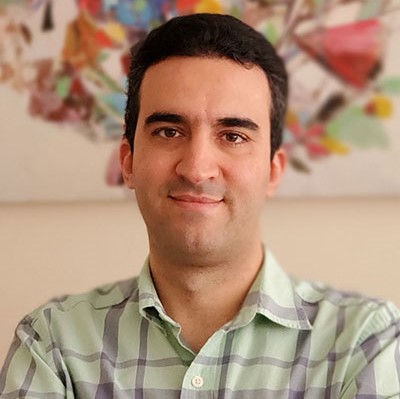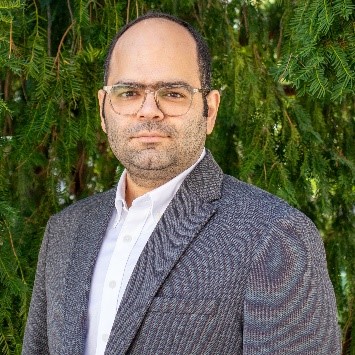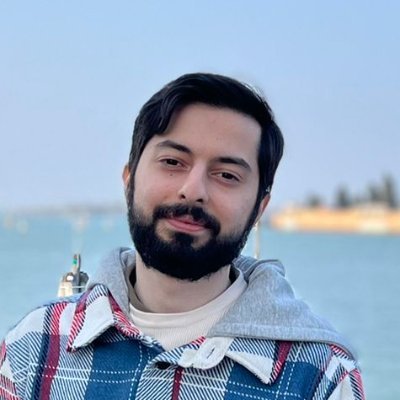
Trust with Evidence – Amirreza Ahmadzadeh
January 5, 2026
PhD from LAPE, Université
PhD from University of Wisconsin-Madison
PhD from University of Leicester
PhD from University of California, Los Angeles
PhD from Georgia State University
PhD from Stockholm School of Economics, Sweden
PhD from Tilburg University
PhD from University of Chicago
PhD from University of Pennsylvania
PhD from University of Texas at Austin
PhD from Texas A&M University

January 5, 2026


December 24, 2025

Recent Publications
Using Iran’s unexpected flood in April 2019 as a natural experiment, we show that local branches bridge the time gap between the disaster and governmental aids by immediately increasing their lending for two months following the flood. Analyzing proprietary information on more than 53,000 farmers, we find that farmers with a stronger relationship with their branch - particularly younger and females - are more likely to receive a recovery loan. Our findings underscore that despite recent technological advancements, relationship-based branch banking is still important for agrarian societies during catastrophic events.
Keywords: Bank branch, Relationship lending, Climate change, Agricultural loans
JEL Classification: G21, G28, O13, Q14, Q54
Using Iran’s unexpected flood in April 2019 as a natural experiment, we show that local branches bridge the time gap between the disaster and governmental aids by immediately increasing their lending for two months following the flood. Analyzing proprietary information on more than 53,000 farmers, we find that farmers with a stronger relationship with their branch - particularly younger and females - are more likely to receive a recovery loan. Our findings underscore that despite recent technological advancements, relationship-based branch banking is still important for agrarian societies during catastrophic events.
Keywords: Bank branch, Relationship lending, Climate change, Agricultural loans
JEL Classification: G21, G28, O13, Q14, Q54
Using Iran’s unexpected flood in April 2019 as a natural experiment, we show that local branches bridge the time gap between the disaster and governmental aids by immediately increasing their lending for two months following the flood. Analyzing proprietary information on more than 53,000 farmers, we find that farmers with a stronger relationship with their branch - particularly younger and females - are more likely to receive a recovery loan. Our findings underscore that despite recent technological advancements, relationship-based branch banking is still important for agrarian societies during catastrophic events.
Keywords: Bank branch, Relationship lending, Climate change, Agricultural loans
JEL Classification: G21, G28, O13, Q14, Q54
Using Iran’s unexpected flood in April 2019 as a natural experiment, we show that local branches bridge the time gap between the disaster and governmental aids by immediately increasing their lending for two months following the flood. Analyzing proprietary information on more than 53,000 farmers, we find that farmers with a stronger relationship with their branch - particularly younger and females - are more likely to receive a recovery loan. Our findings underscore that despite recent technological advancements, relationship-based branch banking is still important for agrarian societies during catastrophic events.
Keywords: Bank branch, Relationship lending, Climate change, Agricultural loans
JEL Classification: G21, G28, O13, Q14, Q54
Using Iran’s unexpected flood in April 2019 as a natural experiment, we show that local branches bridge the time gap between the disaster and governmental aids by immediately increasing their lending for two months following the flood. Analyzing proprietary information on more than 53,000 farmers, we find that farmers with a stronger relationship with their branch - particularly younger and females - are more likely to receive a recovery loan. Our findings underscore that despite recent technological advancements, relationship-based branch banking is still important for agrarian societies during catastrophic events.
Keywords: Bank branch, Relationship lending, Climate change, Agricultural loans
JEL Classification: G21, G28, O13, Q14, Q54
Using Iran’s unexpected flood in April 2019 as a natural experiment, we show that local branches bridge the time gap between the disaster and governmental aids by immediately increasing their lending for two months following the flood. Analyzing proprietary information on more than 53,000 farmers, we find that farmers with a stronger relationship with their branch - particularly younger and females - are more likely to receive a recovery loan. Our findings underscore that despite recent technological advancements, relationship-based branch banking is still important for agrarian societies during catastrophic events.
Keywords: Bank branch, Relationship lending, Climate change, Agricultural loans
JEL Classification: G21, G28, O13, Q14, Q54
The Economics and Finance Program at TEIAS Offers:

The program benefits from full-time faculty members who are leading researchers in the areas of microeconomic theory, labor, development, education, macroeconomics, theoretical and empirical finance, banking etc..

In addition to having tuition fees waived, students will receive a monthly financial support to be able to pursue research without the need to resort to extra activities outside university. Extra research assistant positions are also available.

Full financial support will be provided for students to present their research outputs in reputable international conferences.

Students will be supervised by our faculty researchers who are active in various areas, opening room for a wide range of attractive research problems.

Current research in economics is involved with working with big data and time consuming simulations and estimations. Our unique GPU servers provide the necessary means for carrying out such large-scale data processing and deep learning experiments.

There is a growing demand for Economists and researchers. Upon graduation, students will have the opportunity to pursue a career in academia or industry.
Admission to the program is highly selective; there are many more qualified applicants than there are places in the program. One of the following qualifications is necessary for your application to be processed:

January 5, 2026


December 24, 2025
PhD from LAPE, Université
PhD from University of Wisconsin-Madison
PhD from University of Leicester
PhD from University of California, Los Angeles
PhD from Georgia State University
PhD from Stockholm School of Economics, Sweden
PhD from Tilburg University
PhD from University of Chicago
PhD from University of Pennsylvania
PhD from University of Texas at Austin
PhD from Texas A&M University
PhD from University of California at Berkeley
The Economics Program at TEIAS Offers:

The program benefits from full-time faculty members who are leading researchers in the areas of microeconomic theory, labor, development, education, macroeconomics, theoretical and empirical finance, banking etc..

In addition to having tuition fees waived, students will receive a monthly financial support to be able to pursue research without the need to resort to extra activities outside university. Extra research assistant positions are also available.

Full financial support will be provided for students to present their research outputs in reputable international conferences.

Students will be supervised by our faculty researchers who are active in various areas, opening room for a wide range of attractive research problems.

Current research in economics is involved with working with big data and time consuming simulations and estimations. Our unique GPU servers provide the necessary means for carrying out such large-scale data processing and deep learning experiments.

There is a growing demand for Economists and researchers. Upon graduation, students will have the opportunity to pursue a career in academia or industry.
Admission to the program is highly selective; there are many more qualified applicants than there are places in the program. One of the following qualifications is necessary for your application to be processed:
